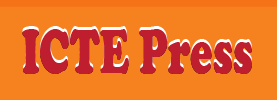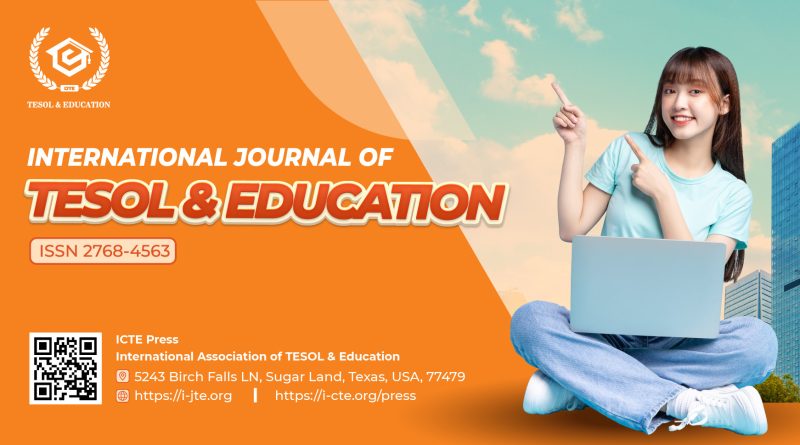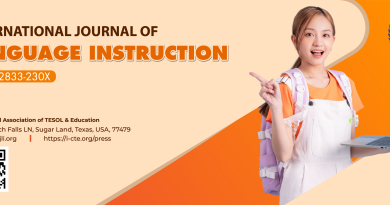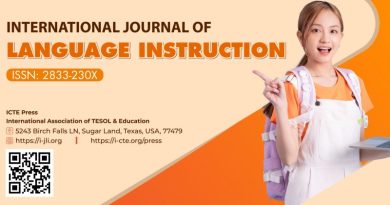TESOL & Education: Vol. 4 No. 1 (2024)

Full Issue
Dear inquisitive readers,
Join us on an exciting adventure through the research articles of the latest issue of The International Jour-nal of TESOL & Education, Volume 4, Issue 1, 2024. This issue has a wealth of fascinating research papers that promise to transform the landscape of language teaching and learning.
Our journey begins with an exploration by Le Hoang Son of the University of Economics, Ho Chi Minh City, and Trinh Minh Ly of the University of Cuu Long in Vietnam. In “An Investigation of Vocabulary Learning Strategies of ESP Students,” they disentangle the complex web of tactics used by ESP students to expand their lexical arsenal.
Next, we visit Basrah Engineering Technical College, Southern Technical College, and the College of Edu-cation in Qurna, University of Basrah, Basra, Iraq, to explore Batool Abdul-Mohsin Miri, Mahdi Kadhim Kareem, and Mariam Naji Mazloum Al-Ghazawi who present “The Iraqi EFL Learners’ Awareness of the Role of Reading Literature in their Creative Writing.” Their findings shed light on the symbiotic link be-tween literature and creative writing skills among Iraqi EFL students.
Our journey then takes a surprising turn with Jayanthi Muniandy and Subathira Devi Ramaya from Universiti Sains Malaysia in Malaysia. In “Unlocking ESP Learners’ Leadership and Higher-Order Thinking Skills through Whatsapp Community of Practice,” they demonstrate how a Whatsapp Community of Practice may help ESP learners improve their leadership and higher-order thinking skills.
Finally, we discuss the technical frontier with Ho Pham Xuan Phuong of the University of Foreign Language Studies at the University of Da Nang, Vietnam. This study, “Using ChatGPT in English Language Learning: A Study on I.T. Students’ Attitudes, Habits, and Perceptions,” reveals how ChatGPT was integrated into English language learning, offering unique insights into I.T. students’ attitudes, habits, and perceptions.
Our deepest gratitude goes to the brilliant experts on our editorial board and the careful reviewers who have created the high standards that our International Journal of TESOL & Education upholds. Their skills and dedication have been the foundation of the quality and relevance contained on these pages.
We encourage you, dear readers, to immerse yourself in the intriguing narratives of this issue, which will create a dynamic interchange of ideas and innovation among the thriving TESOL and education communities.
Thank you for your continuous support; we expect more innovative research in future issues.
Thanks be to God for everything!
Warm regards!
Associate Professor Dr. Pham Vu Phi Ho
Editor-in-chief
International Journal of TESOL & Education



